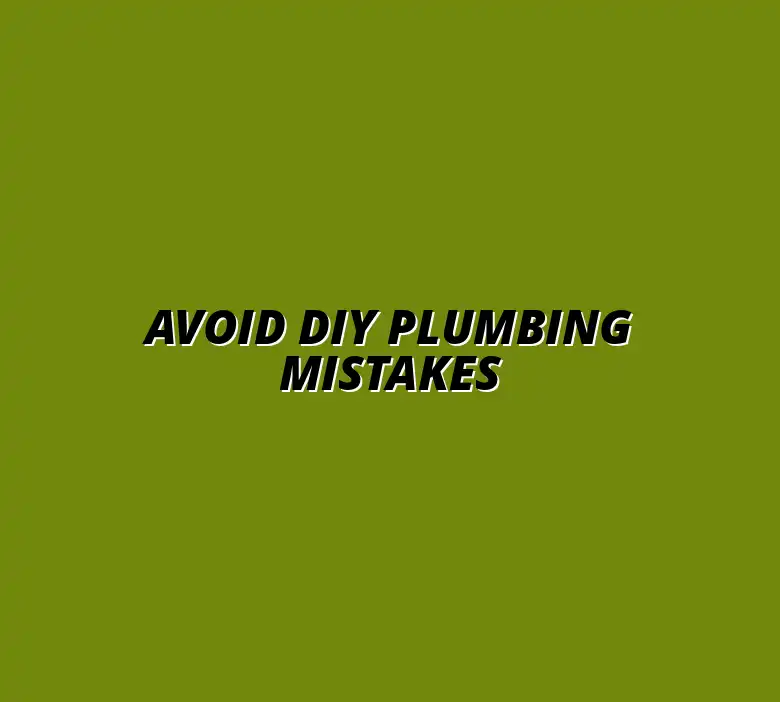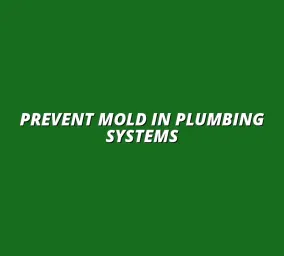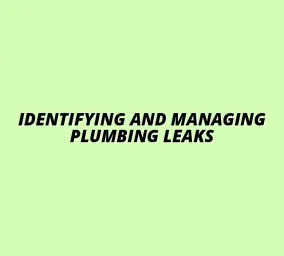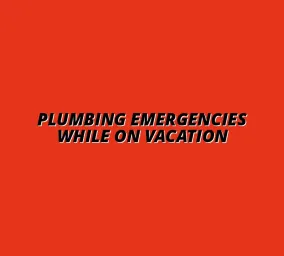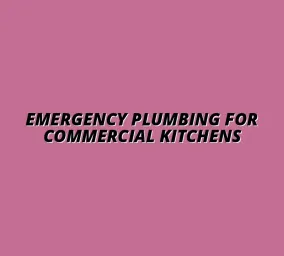Avoid DIY Plumbing Mistakes
Understanding Plumbing Challenges Linked to DIY Repairs
When it comes to home maintenance, many homeowners find themselves diving into DIY plumbing repairs. While this can be a cost-effective way to fix issues, it often leads to unexpected challenges. Understanding plumbing challenges associated with these DIY efforts is key to preventing further damage and frustration.
Common mistakes during DIY plumbing can often escalate minor annoyances into major headaches. From improper fixes to misdiagnosing the problem, many issues arise simply from a lack of understanding. Before tackling plumbing repairs on your own, it's important to recognize the potential pitfalls involved. For example, attempting to fix a running toilet without proper knowledge can easily worsen the problem. Check out this helpful guide on fixing a running toilet easily to avoid common mistakes.
Recognizing Common Plumbing Issues Arising from DIY Efforts
There are several common plumbing issues that frequently surface as a result of DIY attempts. Homeowners often overlook essential details, leading to complications that could have been avoided. Here are some of the most prevalent problems:
- Leaks caused by improper sealant application
- Clogs resulting from incorrect use of plungers or chemicals
- Pipe damage from overtightening fittings
Leaks and Water Damage: The Aftermath of DIY Mistakes
One of the most serious consequences of DIY plumbing errors is the emergence of leaks. These leaks can cause significant water damage to walls, floors, and ceilings. Often, by the time homeowners notice the leak, the damage has already escalated. A burst pipe, for instance, can quickly lead to extensive damage and requires immediate professional attention. Learn how to repairing a burst pipe quickly if you are faced with this emergency.
Water damage not only affects the aesthetics of your home but can also lead to mold growth and structural issues. To avoid these problems, it's crucial to double-check your work with proper techniques and materials when handling any plumbing repairs.
Clogged Drains: Missteps in Unclogging Techniques
Another frequent issue stemming from DIY repairs is clogged drains. Many people rely on harsh chemical treatments or improper tools when attempting to clear a blockage. This can lead to further clogs or even damage to the pipes.
Instead of resorting to potentially damaging methods, consider using safer alternatives. For instance, a simple mix of vinegar and baking soda can often help dislodge stubborn clogs without damaging your plumbing. However, persistent clogs can be a sign of a larger underlying issue. If you experience low water pressure in your kitchen, you might find this guide helpful: Fixing Low Kitchen Water Pressure.
The Importance of Professional Plumbing Services
While DIY projects can be rewarding, there are times when it's best to call in a professional. Knowing when to seek expert help can save you time, money, and added stress. Identifying complex plumbing issues is essential in determining the right course of action. For example, a plumber in your area, such as a plumber in Billesley, Birmingham, can offer expert assistance.
Professional plumbers have extensive training and experience that allow them to diagnose and fix problems accurately. They can also provide valuable advice on preventing future issues, ensuring your plumbing system remains in good condition. Regular maintenance is crucial - learn how to maintain your plumbing year-round to avoid costly repairs.
When to Call a Plumber: Identifying Complex Problems
Some plumbing issues are beyond the scope of a DIY approach. Knowing when to call a plumber can make all the difference. Here are some indicators that you should seek professional help:
- Repeated clogs in the same drain
- Low water pressure throughout the house
- Visible signs of water damage
- Unusual noises or smells coming from the plumbing
Benefits of Hiring a Licensed Plumber Over DIY Solutions
Choosing to hire a licensed plumber comes with numerous advantages. Not only do they have the expertise to handle complex problems, but they also come equipped with the right tools and materials. This means that your plumbing issue can be solved efficiently and effectively. Neglecting water heater maintenance, for example, can lead to costly repairs. Avoid these water heater maintenance mistakes to ensure longevity.
Additionally, licensed plumbers are knowledgeable about local building codes and regulations. They ensure that all work is compliant, which can save you from potential fines and complications down the line. Investing in a plumber can ultimately save you money by preventing costly repairs and damage.
Addressing Frequently Asked Questions About DIY Plumbing Risks
Many homeowners are curious about the risks associated with DIY plumbing projects. It's natural to want to save money and tackle repairs yourself, but it’s essential to understand the potential pitfalls. In this section, let's explore some common mistakes and how to avoid them, ensuring you feel confident in your plumbing endeavors!
By addressing your concerns, we can empower you to make better choices about when to tackle plumbing projects yourself and when it’s prudent to call in the professionals. Preventing frozen pipes during winter is crucial to avoid costly repairs. Find out how to prevent frozen pipes this winter.
What are the Most Common DIY Plumbing Mistakes?
When diving into DIY plumbing, it's easy to make mistakes that can lead to costly repairs. Here are some of the most frequent blunders homeowners encounter:
- Ignoring instructions or tutorials, leading to improper installation.
- Using the wrong tools for the job, which can cause damage.
- Underestimating the importance of shutting off the water supply.
- Neglecting to check for local plumbing codes before starting the project.
To avoid these mistakes, investing time in **research** is crucial. Utilize various resources like online tutorials, videos, and forums dedicated to home improvement. This will help ensure you have the right knowledge before starting a project.
Research and Resources for Avoiding Common Errors
There are numerous tools and resources available to help prevent common mistakes in DIY plumbing. Here are some helpful options:
- Online video tutorials that demonstrate plumbing techniques.
- DIY plumbing websites with forums for questions and advice.
- Local home improvement workshops offering hands-on guidance.
- Books and guides focused on plumbing projects.
By exploring these resources, you can gain valuable insights and techniques that will enhance your skills, making you more confident in your DIY plumbing projects!
How Can I Identify When to Stop DIY and Call a Professional?
Recognizing the limits of your skills is vital in DIY plumbing. If you encounter any of the following symptoms, it's time to call a professional:
- Unexplained water leaks or flooding in your home.
- Persistent clogs that don't respond to basic unclogging methods.
- Low water pressure or sudden changes in water temperature.
- Unusual noises coming from pipes, such as banging or gurgling.
These signs can indicate more serious plumbing issues that may require specialized knowledge and tools. It's always best to prioritize safety and seek professional help if you’re unsure.
Symptoms of Plumbing Problems That Require Expert Attention
Here are some additional symptoms that should prompt you to consider professional plumbing services:
- Visible mold growth near pipes or fixtures.
- Water discoloration or strange odors.
- Pipes that have become hot to the touch.
- Drainage issues that occur in multiple locations.
By recognizing these warning signs, you can prevent further damage and maintain the health of your plumbing system!
Final Thoughts on Preventing Plumbing Problems from DIY Repairs
In summary, while DIY plumbing can be fulfilling, it’s essential to know when to tread carefully. By learning about common mistakes and recognizing the symptoms that require professional help, you can protect your home from costly repairs.
Understanding these points can empower you to make informed decisions, balancing your DIY enthusiasm with the need for professional assistance when necessary.
Summarizing Key Takeaways for Safe DIY Plumbing
Here are the key takeaways to ensure safe and effective DIY plumbing:
- Conduct thorough research before starting any plumbing project.
- Understand the limitations of your skills and tools.
- Recognize signs that indicate professional help is needed.
- Use reliable resources and community support to enhance your plumbing knowledge.
Taking these steps can help you avoid common pitfalls and ensure your DIY plumbing efforts are successful!
Empowering Homeowners to Make Informed Plumbing Decisions
By being aware of the risks and educating yourself, you can confidently tackle plumbing projects or know when to call a professional. This empowerment allows for safer and more effective home improvements!
Encouraging Responsible DIY Practices for Plumbing Projects
Responsible DIY practices are all about balance. While it’s great to be enthusiastic about home repairs, it’s equally important to recognize the value of professional expertise. By fostering this balance, you can enjoy the satisfaction of DIY projects while ensuring your plumbing remains in good shape!
In the end, taking the time to educate yourself will pay off in both your skills and your home's well-being. Happy plumbing!

